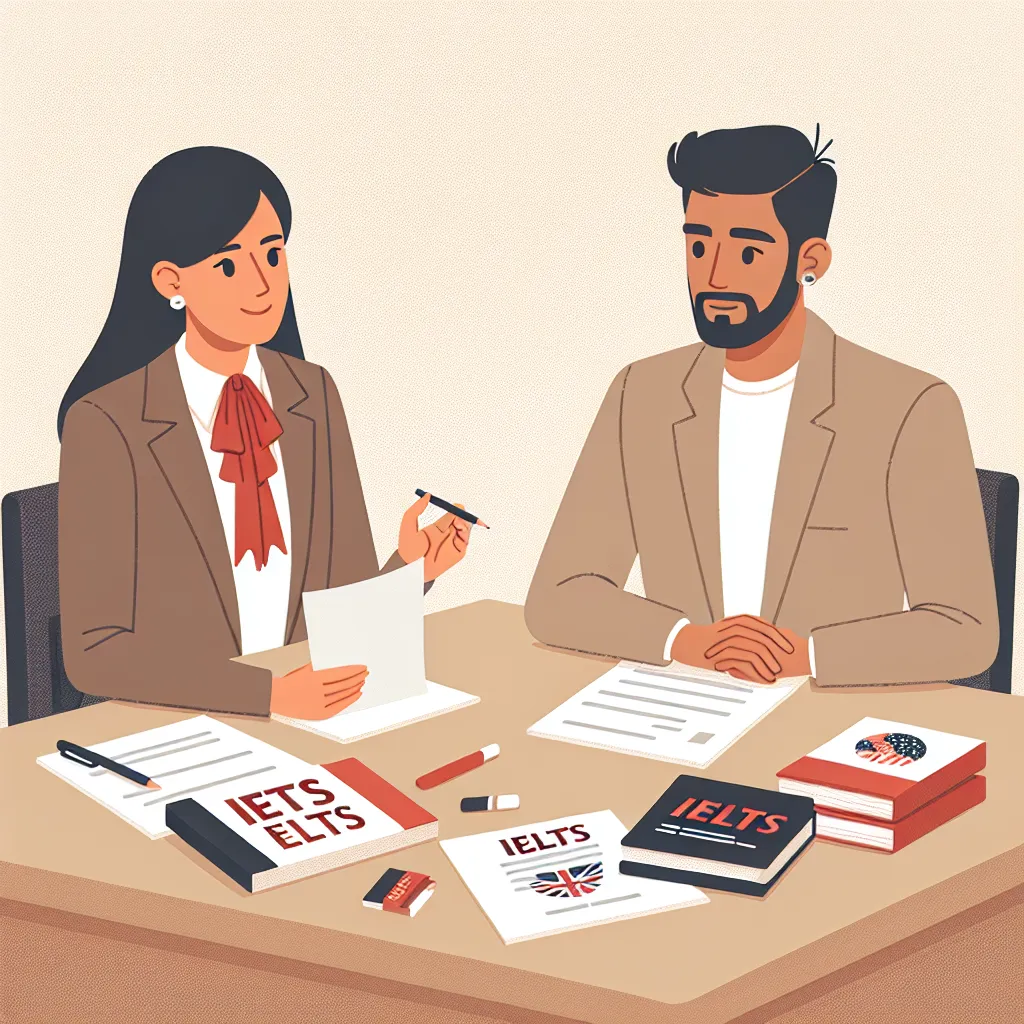As an experienced IELTS Speaking examiner, I’ve noticed that discussing skilled professionals is a common topic in the IELTS Speaking test. This theme has appeared frequently in past exams and is likely to remain relevant in future tests. In this article, we’ll explore effective strategies to excel when describing a person who is very skilled at their job in IELTS Speaking.
 IELTS Speaking Test
IELTS Speaking Test
Part 1: Introduction and Interview
In Part 1, you may encounter questions related to skilled professionals. Here’s an example question with a suggested answer:
Q: Do you know anyone who is particularly skilled at their job?
A: Absolutely. My uncle is an exceptionally skilled surgeon. He’s renowned for his expertise in cardiac procedures and has pioneered several innovative techniques in his field. What sets him apart is not just his technical prowess, but also his unwavering dedication to patient care. He’s always staying abreast of the latest medical advancements and continuously honing his skills.
Part 2: Long Turn (Cue Card)
Cue Card
Describe a person who is very skilled at their job.
You should say:
- Who this person is
- What their job is
- How you know about their skills
- And explain why you think they are skilled at their job
Sample Answer
I’d like to talk about my former professor, Dr. Emily Chen, who is exceptionally skilled in her role as a research scientist and educator in the field of artificial intelligence.
Dr. Chen is a leading expert in machine learning and has been working at the forefront of AI research for over two decades. Her job involves conducting cutting-edge research, publishing academic papers, and teaching graduate-level courses at a prestigious university.
I became aware of her remarkable skills during my master’s program, where I had the privilege of attending her lectures and working on a research project under her guidance. Her in-depth knowledge and ability to explain complex concepts in a clear, engaging manner were truly impressive.
What makes Dr. Chen stand out in her field is her unique combination of technical expertise and creative problem-solving abilities. She has a knack for identifying novel applications of AI in various industries, from healthcare to environmental conservation. Her research has led to several groundbreaking discoveries, and she holds multiple patents for her innovations.
Moreover, Dr. Chen’s skills extend beyond the technical realm. She’s an outstanding mentor, always encouraging her students to think critically and push the boundaries of what’s possible in AI. Her ability to inspire and nurture talent has produced many successful researchers and entrepreneurs in the field.
In conclusion, Dr. Chen’s exceptional skills in AI research and education, combined with her innovative thinking and mentorship abilities, make her a truly remarkable professional in her field.
Follow-up Questions
Q: How does Dr. Chen stay updated with the latest developments in AI?
A: From what I observed, Dr. Chen employs several strategies to stay at the cutting edge of AI developments. She religiously follows top academic journals and attends major conferences in the field. Additionally, she’s actively involved in collaborative research projects with other institutions and tech companies, which keeps her well-informed about industry trends and emerging technologies.
Q: Do you think her skills have contributed to advancements in AI?
A: Absolutely. Dr. Chen’s research has made significant contributions to the field of AI. Her work on improving machine learning algorithms has led to more efficient and accurate AI systems. Moreover, her interdisciplinary approach, combining AI with fields like neuroscience and psychology, has opened up new avenues for AI applications in understanding human cognition and behavior.
Part 3: Two-way Discussion
Examiner: How do you think technology has changed the skills required for many jobs?
Candidate: Technology has undoubtedly revolutionized the skill requirements across various professions. Firstly, digital literacy has become essential in almost every field. Even traditionally non-tech jobs now often require proficiency in specific software or digital tools. For instance, architects now need to master 3D modeling software, while marketers must be adept at using data analytics platforms.
Moreover, the rapid pace of technological advancement has made continuous learning and adaptability crucial skills. Professionals need to constantly update their knowledge and be willing to embrace new technologies to remain competitive.
Another significant shift is the increased emphasis on soft skills like critical thinking, creativity, and emotional intelligence. As many routine tasks become automated, these uniquely human skills have become more valuable. For example, while AI can analyze data, humans are still needed to interpret results, make strategic decisions, and communicate findings effectively.
Lastly, I believe technology has heightened the importance of interdisciplinary skills. Many innovative solutions now emerge at the intersection of different fields. A prime example is the growing field of bioinformatics, which requires expertise in both biology and computer science.
Examiner: Do you think traditional skills are becoming less important in the modern workplace?
Candidate: That’s an intriguing question. While it’s true that many traditional skills have been supplanted by technological advancements, I don’t believe they’ve become less important overall. Rather, I think their role and application have evolved.
For instance, take writing skills. In the past, this might have primarily involved crafting lengthy reports or formal letters. Today, while the medium has shifted to emails, social media posts, or blog articles, the fundamental ability to communicate clearly and persuasively remains crucial.
Similarly, interpersonal skills like negotiation, teamwork, and leadership are as vital as ever, if not more so. In our increasingly interconnected global economy, the ability to collaborate effectively with diverse teams and navigate complex human dynamics is paramount.
Moreover, many traditional trade skills, such as plumbing or carpentry, remain highly valuable. In fact, as more young people pursue white-collar careers, these skills are often in high demand and well-compensated.
That being said, it’s important to note that even these traditional skills often require a modern update. A carpenter today might need to use computer-aided design software, while a plumber might need to understand smart home systems.
In conclusion, I believe traditional skills remain important, but they need to be complemented by and integrated with modern technological competencies to be truly effective in today’s workplace.
Key Vocabulary and Phrases for High Scores
-
Exceptionally skilled /ɪkˈsepʃənəli skɪld/ (adjective phrase): Extremely proficient or talented.
Example: She is exceptionally skilled in data analysis. -
Renowned /rɪˈnaʊnd/ (adjective): Famous for a particular ability or achievement.
Example: He is renowned for his innovative approach to problem-solving. -
Pioneered /ˌpaɪəˈnɪəd/ (verb): Developed or introduced new methods or ideas.
Example: The company pioneered a revolutionary manufacturing process. -
Sets apart (phrasal verb): Makes someone or something different or special.
Example: Her attention to detail sets her apart from her colleagues. -
Staying abreast /steɪŋ əˈbrest/ (phrasal verb): Keeping informed about the latest developments.
Example: It’s crucial to stay abreast of changes in technology in this field. -
Honing /həʊnɪŋ/ (verb): Refining or perfecting a skill over time.
Example: He’s been honing his public speaking skills for years. -
Cutting-edge /ˈkʌtɪŋ edʒ/ (adjective): The most advanced stage of development.
Example: The laboratory uses cutting-edge equipment for their research. -
Groundbreaking /ˈɡraʊndˌbreɪkɪŋ/ (adjective): Innovative; pioneering.
Example: Her groundbreaking research changed our understanding of climate change.
Examiner’s Advice
To achieve a high score in IELTS Speaking when discussing skilled professionals:
- Use a range of advanced vocabulary and idiomatic expressions related to skills and expertise.
- Provide specific examples to support your points, demonstrating your ability to elaborate.
- Discuss both technical skills and soft skills to show a comprehensive understanding of professional competence.
- Practice speaking about various professions and the skills they require to improve your fluency on this topic.
- Develop your ability to discuss abstract ideas related to skills and the workplace for Part 3 discussions.
Remember, consistent practice and expanding your vocabulary are key to excelling in the IELTS Speaking test. Good luck with your preparation!
For more tips on describing people in IELTS Speaking, check out our guides on how to describe a person who is very good at giving advice and how to describe a person who is good at managing crises.


